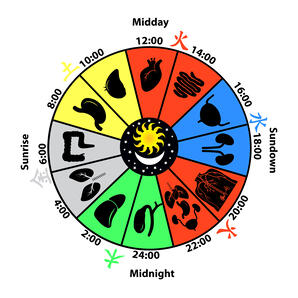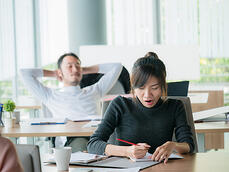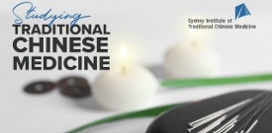Do you find it challenging waking up after hitting the sack? Morning people usually stay proactive during the day, and this makes their work easy and their output more productive. Many successful company CEOs are generally up by 5 am. Being tired is the root of waking up late and can at times be chronic, hence the need for a new approach with Traditional Chinese Medicine.

TCM is an entirely different way to health that focuses on mind-body healing. Based on the principles of Yin and Yang in which contrasting elements stay in balance to determine healthy Qi and positive life energy. Qi deficiency, according to TCM, is lacking vital energy in the body. TCM practitioners, therefore, indicate that increasing Qi needs complete chewing of food, and eating nourishing foods like soups, vegetables and animal protein. Cold foods, sugar and iced drinks should be avoided at all times.
TCM body clock is a vital tool that can help one become a morning person. According to TCM practitioners, one has to develop a schedule to be able to face the day with lots of energy. Explaining well the importance of a night time can help you to become the successful morning person you have always try to achieve.
Night Habits
The nap before 11 p.m. is undoubtedly the most crucial one. This is so because, after that time, the gallbladder peaks up and utilises your body’s energy to take you into a deep slumber. After 1 a.m., the rejuvenation to sleeping well shifts into the liver. Soft inhales and exhales would be significant. By the time it’s 5 a.m., your large intestine would be filled with excretory waste ‘urine,’ making you feel the urge to visit the bathroom.
During this time, the liver processes toxins which possibly prepare you to wake up early. If your body is unable to work throughout this normal process, the chances are that you are either unwell or stressed the next day.
Daily Habits

TCM practitioners insist starting a day by drinking warm water and having a substantial breakfast to keep the body energised during the day. At lunchtime, one is advised to eat something light and something even lighter at night.
After a long day of work, relax, and reflect on the businesses of your day. From 5 p.m. to 7 p.m., this would arguably the best time to have your dinner. Afterwards, chill out for about two to three hours before embarking on hitting the sack. This is called ‘the three heaters.’ and make sure to rest in bed by 11 pm.
It’s advisable to prioritise on TCM whenever you find it hard to waking up regularly. Traditional Chinese Medicine can help you break your routine slumber to become more productive. TCM’s time approach can help you to change how you face your day.

References
In Liu, Z., In Mondot, M., & In Niu, X. (2012). Health cultivation in Chinese medicine.
Kastner, J. (2004). Chinese nutrition therapy: Dietetics in traditional Chinese medicine (TCM).
Stuttgart: Thieme.




